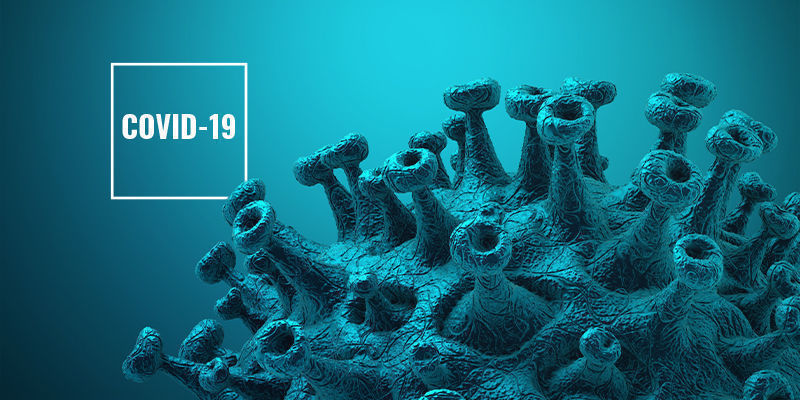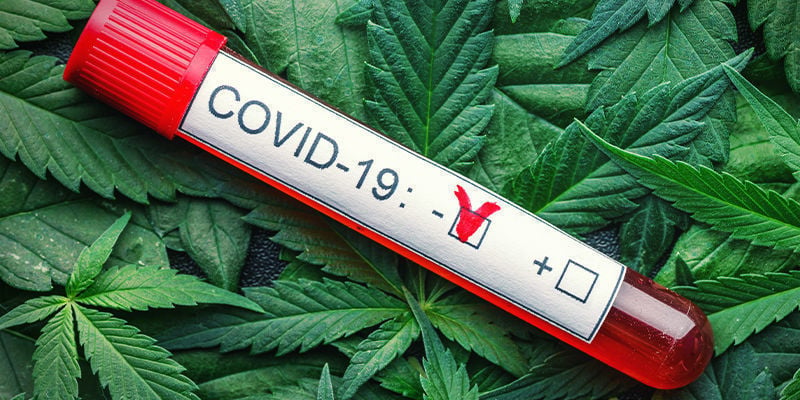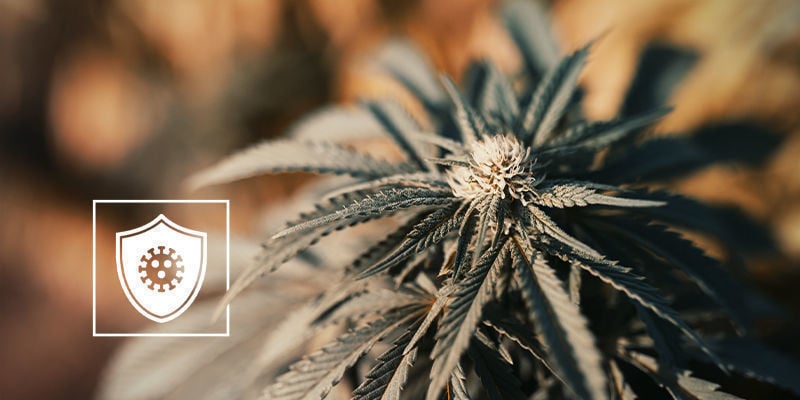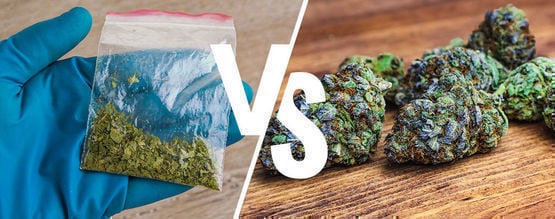
Cannabinoids: Might They Help Prevent COVID-19?
In a world where cannabis can be positively linked to almost any condition, it might seem a stretch to suggest that it could help with COVID-19. But, a recent piece of research suggests that certain cannabinoids found in the cannabis plant might be able to help against corona virus entering host cells. Here we investigate.
It may not be news that the COVID-19 pandemic has caused some global problems, nor has the vaccine rollout fully mitigated these.
At the time of writing, COVID-19 has claimed around 5.5 million lives and caused 351.5 million known infections – and likely more. These are some staggering numbers, and the disruption to life for almost every person on the planet is unquantifiable.
Given the speed at which COVID-19 evolves, a greater armoury than vaccines alone will be beneficial in combating both its spread and its severity. A recent study from the University of Oregon indicates that certain elusive cannabinoids may have a role to play in protecting cells from COVID-19 infection (Breemen et al. 2022)[1].
How does corana virus infect cells?

In order for a virus to replicate, it must bind to and take over cells within the host. Within humans, SARS-Cov-2 (COVID) binds most readily to cells with the receptor known as ACE2 (or angiotensin-converting enzyme-2 for those wanting to get sciencey). Cells with ACE2 receptors are mostly found in the lungs, arteries, heart, kidney, and intestines. COVID is able to find its way into the lungs easiest, hence its association with airways.
The spike proteins on the surface of the COVID bind to cells with ACE2 receptors, allowing them to invade and produce more COVID viruses within it—ready to burst and spread more.
How could cannabis affect COVID infection?

Researchers used isolated cannabigerolic acid (CBGA) and cannabidiolic acid (CBDA) to test whether these cannabinoids could block COVID binding to our cells. They did this experiment in vitro – meaning in a lab, rather than in living organisms.
The initial results were positive. They found that CBGA and CBDA appeared to bind to the spike proteins of COVID, making them unable to catch to our cells, thus blocking them. That said, the amounts of these cannabinoids necessary to be effective are likely to be high. Researchers state, “concentrations needed to block infection by 50% of viruses is high but might be clinically achievable”. They speculated that using CBGA and CBDA together might be more effective than either used alone.
Which Corona variant might cannabis help against?
This research began nearer the beginning of the pandemic. Yet, they were specifically looking to discover if cannabinoids may be able to step in where vaccines and natural resistance faltered in the face of newer variants.
At the time they tested with the varients known as Alpha and Beta. They found that these cannabinoids offered robust defence against emerging variants.
However, without further research into newer variants, it is not possible know the potential for Delta or Omicron.
How was the research conducted?

As mentioned, these tests were carried out in vitro – in a lab. Think petri dishes, syringes test tubes, and a very sterile environment. It means there was no animal or human testing or any large-scale testing. This is research at its very first steps.
Cells in these conditions were exposed to either the live virus or a pseudovirus expressing COVID spike proteins. It was then assessed what, if any, effect the introduction of CBGA and CBDA had on rates of infection after both 24 and 48 hours.
Which cannabinoids were the most effective against COVID-19?
CBGA, CBDA and THCA-A all showed the highest efficacy in terms of blocking viral entry into host cells. Likewise, Δ9-tetrahydrocannabinol, Δ8-tetrahydrocannabinol, cannabichromene, cannabigerol, cannabinol, and cannabidiol showed little to no efficacy.
This demonstrates another problem of taking this research and the headlines at face value. The cannabinoids which were most effective are not present in great quantities in cannabis and are not easily administered. For instance, smoking a joint is not going to get you a good dose of CBGA, CBDA or THCA-A. Infact, combusting cannabis turns CBDA and CBGA into CBD and CBG, so you would get none!
Can cannabis help with the fight against COVID-19?

As it stands, cannabis is not about to step in and save the day. But that’s not to say it won’t have a role to play in the future, nor that this discovery won’t lead to broader, even more profound discoveries.
Whilst the worst of the COVID pandemic might come to an end before we are able to use CBDA or CBGA, if it transpires that the mechanisms by which it inhibited COVID in this research can be expanded to other viral infections, then this may set the groundwork for a general breakthrough in preventing and treating similar viruses in the future.
- (n.d.). van Breemen, R., Muchiri, R., Bates, T., Weinstein, J., Leier, H., Farley, S. and Tafesse, F., 2022. Cannabinoids Block Cellular Entry of SARS-CoV-2 and the Emerging Variants. Journal of Natural Products - https://doi.org
-
 6 min
29 April 2024
Synthetic Vs Natural Cannabis: What’s The Difference?
There are three kinds of cannabinoids: those produced by the body, those produced by plants, and those produced in a lab. Many of the latter, known as synthetic cannabinoids, can be extremely...
6 min
29 April 2024
Synthetic Vs Natural Cannabis: What’s The Difference?
There are three kinds of cannabinoids: those produced by the body, those produced by plants, and those produced in a lab. Many of the latter, known as synthetic cannabinoids, can be extremely...
-
 3 min
4 February 2020
Cannabinoids Are Not Unique To Cannabis
If you thought cannabinoids were exclusive to cannabis, think again! There are many plant species that contain cannabinoids, terpenes, and cannabimimetics. With cannabinoid-based treatments...
3 min
4 February 2020
Cannabinoids Are Not Unique To Cannabis
If you thought cannabinoids were exclusive to cannabis, think again! There are many plant species that contain cannabinoids, terpenes, and cannabimimetics. With cannabinoid-based treatments...
-
 2 min
13 June 2019
CBD, THC & CBG - Exploring Cannabinoids
Cannabis contains over 480 active compounds, 80 of which are only found in cannabis. This is a lot of different variables that affect the body, and it partly why there is always new scientific...
2 min
13 June 2019
CBD, THC & CBG - Exploring Cannabinoids
Cannabis contains over 480 active compounds, 80 of which are only found in cannabis. This is a lot of different variables that affect the body, and it partly why there is always new scientific...








 United States
United States













